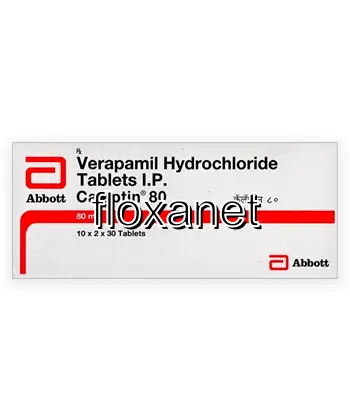| Package | Dosage | Price | Price per Dose | |
|---|---|---|---|---|
| Dosage: 40mg | ||||
| 270 pill | 40mg | NZD126.22 | NZD0.47 | |
| 120 pill | 40mg | NZD70.11 | NZD0.58 | |
| 90 pill | 40mg | NZD58.42 | NZD0.65 | |
| 60 pill | 40mg | NZD46.73 | NZD0.77 | |
| Dosage: 120mg | ||||
| 270 pill | 120mg | NZD285.19 | NZD1.05 | |
| 120 pill | 120mg | NZD142.58 | NZD1.19 | |
| 90 pill | 120mg | NZD116.87 | NZD1.31 | |
| 60 pill | 120mg | NZD93.49 | NZD1.57 | |
| 30 pill | 120mg | NZD60.76 | NZD2.03 | |

Verapamil Hydrochloride Description
Introduction to Verapamil Hydrochloride
Verapamil Hydrochloride is a widely used medication in the treatment of various cardiovascular conditions. It belongs to the class of calcium channel blockers that help relax and widen blood vessels, making it easier for the heart to pump blood efficiently. This medication is often prescribed for managing high blood pressure, certain types of angina, and some arrhythmias. Patients appreciate its effectiveness in controlling symptoms and improving quality of life. When used correctly, Verapamil Hydrochloride offers a reliable option for those seeking to manage their heart-related health issues.
How Does Verapamil Hydrochloride Work?
The main mechanism of Verapamil Hydrochloride involves blocking calcium ions from entering the cells of the heart and blood vessel walls. Calcium is essential for muscle contraction, including the muscles of the heart. By inhibiting calcium's movement, Verapamil reduces the strength of heart contractions, dilates arteries, and decreases the heart rate. This combined effect helps lower blood pressure and reduces the oxygen demand by the heart, easing angina symptoms. Patients often find that this medication provides quick relief and long-lasting control of their cardiovascular symptoms.
Benefits and Effectiveness
Many users report significant benefits from taking Verapamil Hydrochloride. Its ability to effectively lower blood pressure helps reduce the risk of stroke, heart attack, and kidney problems associated with hypertension. For angina, it relieves chest pain by improving oxygen supply to the heart muscle. The medication's anti-arrhythmic properties can help stabilize irregular heartbeats, providing a smoother and more regular heartbeat. Overall, Verapamil Hydrochloride is known for its reliability and proven track record in managing various cardiac conditions.
Possible Side Effects and Precautions
Like all medications, Verapamil Hydrochloride can cause side effects in some individuals. Common issues include constipation, dizziness, flushing, and swelling of the ankles or feet. Serious side effects are rare but may involve a slow heart rate, low blood pressure, or allergic reactions. It is important for patients to follow their doctor's instructions carefully and inform them of any adverse reactions. People with certain conditions such as severe heart failure, certain types of heart block, or low blood pressure should avoid this medication unless explicitly advised by a healthcare professional. Regular monitoring and communication with your doctor can help ensure safe usage.
Proper Usage and Storage
Verapamil Hydrochloride should be taken exactly as prescribed. Typically, it is administered orally in the form of extended-release tablets or capsules. It is important to adhere to the dosing schedule and avoid skipping doses. Swallowing the medication whole without crushing or chewing ensures proper absorption. Store the medication in a cool, dry place away from direct sunlight and moisture. Keep it out of reach of children and pets. Do not share your medication with others, even if they have similar symptoms, as this could lead to unwanted complications.